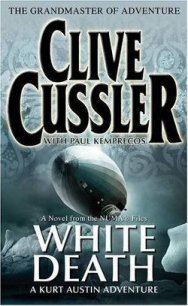The Whispering Land - Durrell Gerald (книги без регистрации бесплатно полностью TXT) 📗
"But these are terribly good," I said, "You must do something with them."
"Do you think so?" he inquired doubtfully, peering at the paintings. "I have sent some to the man in charge of the Museum at Cordoba, and he liked them. He said we should have a small book printed when I have enough of them, but this I think is doubtful, for you know how costly a production would be."
"Well, I know the people in charge of the Museum at Buenos Aires," I said. "I will speak to them about you. I don't guarantee anything, but they might be able to help."
"That would be wonderful," he said, his eyes shining. "Tell me," I said, "do you like your work here in the saw-mill?"
"Like it?" he repeated incredulously, "like it? Senior, it is soul-destroying. But it provides me with enough to live on, and by careful saving I have enough left over to buy paints. Also I am saving to buy a small cine-camera, for however skilful you are as a painter there are certain things that birds do which can only be captured on film. But these cine-cameras are very expensive, and I am afraid it will be a long time before I can afford it."
He talked on for an hour or so, quickly, enthusiastically, telling me what he had accomplished and what he hoped to do. I had to keep reminding myself that this was a man – a peasant, if you prefer the term – who worked in a saw-mill and lived in a house which, though spotless, no so-called "worker" in England would be seen dead in. To have discovered Coco in the outskirts of Buenos Aires would not have been, perhaps, so incredible, but to find him here in this remote, unlikely spot, was like suddenly coming across a unicorn in the middle of Piccadilly.* And, although he explained to me the difficulties of saving enough money to buy paints, and enough to buy his dream cine-camera, there was never once the slightest suggestion that financial aid might be forthcoming from me. He was simply, with the naivete of a child, discussing his problems with someone he felt would understand and appreciate what he was doing. To him I must have represented a millionaire, yet I knew that if I offered him money I would cease to be his friend, and become as the other inhabitants of the village, a person who did not understand. The most I could do was to promise to speak to the Museum in Buenos Aires (for good bird-painters are not two a penny*) and to give him my card, and tell him that if there was anything that he wanted from England which he could not obtain in Argentina, to let me know and I would send it to him. When, eventually, Luna reappeared and we simply had to leave, Coco said goodbye wistfully, rather like a child who had been allowed to play with a new toy, and then had it taken away. As we drove off he was standing in the centre of the dusty, rutted street, watching the car and turning my card over and over in his hands, as if it were some sort of talisman.
Unfortunately, on my way down to Buenos Aires I lost Coco's address, and I did not discover the loss until I got back to England. But he had mine, and I felt sure that he would write and ask me to send him a bird book or perhaps some paints, for such things are hard to get in Argentina. But there was no word from him. Then, when Christmas came, I sent him a card, and in it I reiterated my offer to send him anything he needed. I sent the card care of Charles,* at Calilegua, who kindly drove out and delivered it to Coco. Then Coco wrote to me, a charming letter, in which he apologised for his bad English, but he thought that, nevertheless, it was improving slightly. He gave me news of his birds and his painting. But there was not a single request in the letter. So, at the risk of offending him, I packed up a parcel of books that I thought would be of the greatest use to him, and shipped them off. And now, when I get disgruntled with my lot, when I get irritated because I can't afford some new animal, or a new book, or a new gadget for my camera, I remember Coco in his tiny study, working hard and enthusiastically with inadequate tools and money, and it has a salutary effect on me. On the way back to Calilegua Luna asked me what I had thought of Coco, since everyone in the village thought he was loco. I said he was, in my opinion, one of the sanest men I had ever met, and certainly one of the most remarkable. I hope that some day I have the privilege of meeting him again.
On the way back to Calilegua we stopped briefly at another village where Luna had heard a rumour that some bicho was being kept. To my delight it turned out to be a fully adult male peccary, ridiculously tame, and the perfect mate for Juanita. Ha was called, by his owner, Juan, and so we purchased him, and put him, grunting excitedly, into the back of the car and drove back to Calilegua in triumph. Juan, however, was so large, clumsy and eagerly tame that I felt he might, in all innocence, damage Juanita, who was only a quarter his size, and very fragile, so I was forced to cage them separately until Juanita had grown sufficiently. However, they touched noses through the bars, and seemed to be delighted with each other, so I had hope of eventually arranging a successful marriage.
At last the day came when I had to leave Calilegua. I did not want to leave a bit, for everyone had been too kind to me. Joan and Charles, Helmuth and Edna, and the human nightingale Luna, had accepted me, this complete stranger, into their lives, allowed me to disrupt their routine, showered me with kindness and done everything possible to help in my work. But, although I had been a stranger on arrival in Calilegua, such was the kindness shown to me that within a matter of hours I felt I had been there for years. To say that I was sorry to leave these friends was putting it mildly.
My journey was, in the first stages, slightly complicated. I had to take the collection on the small railway that ran from Calilegua to the nearest big town. Here everything had to be transshipped on to the Buenos Aires train. Charles, realising that I was worried about the transshipment side of the business, insisted that Luna travelled with me as far as the main town, and that he, Helmuth and Edna (for Joan was still ill) would drive into the town and meet us there, to sort out any difficulties. I protested at the amount of trouble this would put them to, but they shouted my protests down, and Edna said that if she was not allowed to see me off she would give me no more gin that evening. This frightful threat squashed my protests effectively.
So, on the morning of departure, a tractor dragging a giant flat cart arrived outside Charles's house, and the crates of animals were piled up on it and then driven slowly to the station. Here we stacked them on the platform, and awaited the arrival of the train. I felt distinctly less happy when I examined the railway lines. They were worn right down, obviously never having been replaced for years. In places the weight of the train had pushed both the sleeper* and the track so far into the ground that, from certain angles, they seemed to disappear altogether. There was such a riot of weeds and grass growing all over the track anyway, that it was difficult enough to see where the railway began and the undergrowth ended. I estimated that if the train travelled at anything more than five miles an hour on such a track we were going to have the train crash of the century.*
"This is nothing," said Charles proudly, when I protested at the state of the lines, "this is good compared to some parts of the track."
"And I thought the plane I came in was dangerous enough," I said, "but this is pure suicide. You can't even call them railway lines, they're both so bent they look like a couple of drunken snakes."
"Well, we haven't had an accident yet," said Charles. And with this cheerful news I had to be content. When the train eventually came into view it was so startling that it drove all thoughts about the state of the track out of my head. The carriages were wooden, and looked like the ones you see in old Western films.* But it was the engine that was so remarkable. It was obviously an old one, again straight out of a Wild West film, with a gigantic cowcatcher* in front. But someone, obviously dissatisfied with its archaic appearance, had attempted to liven it up a bit, and had streamlined it with sheets of metal, painted in broad orange, yellow and scarlet stripes. It was, to say the least, the gayest engine I had ever seen; it looked as though it had just come straight from a carnival as it swept down towards us at a majestic twenty miles an hour, the overgrown track covering the rails so successfully that the thing looked as though it was coming straight across country. It roared into the station with a scream of brakes, and then proudly let out a huge cloud of pungent black smoke that enveloped us all. Hastily we pushed the animal crates into the guard's van, Luna and I went and got ourselves a wooden seat in the compartment next door, and then, with a great jerk and a shudder, the train was off.



